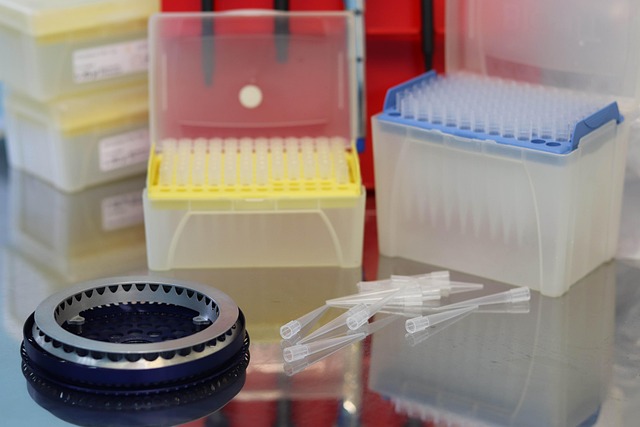Vitamin B12 deficiency, affecting those with specific medical conditions or dietary choices, is a growing concern in the UK. Early detection through regular Kidney Blood Test UK screenings is vital as it can prevent severe neurological and blood cell formation issues. Symptoms include fatigue, memory loss, balance problems, and anemia. High-risk individuals should consider these tests due to vegetarian/vegan diets, pernicious anemia, or digestive disorders, allowing for timely B12 treatment via injections or supplements. Kidney blood tests measure creatinine levels and eGFR, indicating kidney health and contributing to effective management of both conditions simultaneously. The 'normal' range for Vitamin B12 deficiency test results through a Kidney Blood Test UK is typically 140-900 pg/ml; consulting a healthcare professional is crucial for personalized advice.
In the UK, vitamin B12 deficiency is a growing concern. Understanding this condition and its potential risks is crucial for maintaining overall health. This article explores the role of kidney blood tests in diagnosing B12 deficiency, providing insights into how these tests can help identify nutrient deficiencies. We’ll guide you through interpreting results and explain what ‘normal’ ranges mean, empowering you to take charge of your well-being. Kidney Blood Tests UK offer a vital tool for early detection and management.
- Understanding Vitamin B12 Deficiency: Symptoms and Risks
- The Role of Kidney Blood Tests in Diagnosing Deficiency
- How to Interpret Your Results: What Does a Normal Range Mean?
Understanding Vitamin B12 Deficiency: Symptoms and Risks
Vitamin B12 deficiency is a growing concern, particularly in those with certain medical conditions or dietary restrictions. It’s crucial to identify as early detection can prevent severe neurological damage and blood cell formation issues. Symptoms often include fatigue, weakness, memory loss, and balance problems. Anemia, caused by insufficient red blood cells, is also a common sign, which can lead to shortness of breath and dizziness. Those at higher risk in the UK may need regular Kidney Blood Test UK screenings, especially if they follow vegetarian or vegan diets, have pernicious anemia, or certain digestive disorders. Early diagnosis through these tests allows for timely treatment with B12 injections or supplements to restore levels and mitigate potential long-term complications.
The Role of Kidney Blood Tests in Diagnosing Deficiency
In the diagnosis of Vitamin B12 deficiency, kidney blood tests play a significant role, especially in the UK where healthcare professionals often incorporate these assessments as part of a comprehensive evaluation. These tests are crucial for detecting any underlying renal issues that might contribute to or be indicative of B12 deficiency. The kidney’s primary function is to filter and regulate the blood, and abnormalities in this process can lead to an accumulation or depletion of essential nutrients, including Vitamin B12.
Kidney Blood Tests UK offer valuable insights into the kidney’s health, such as assessing the levels of creatinine and estimating glomerular filtration rate (eGFR). These indicators help determine the kidneys’ ability to filter waste products from the blood, which is essential for maintaining optimal nutrient levels, including Vitamin B12. When a deficiency is suspected, these tests can aid in identifying any kidney-related causes or comorbidities that may require simultaneous treatment, ensuring a more comprehensive and effective approach to managing Vitamin B12 deficiency.
How to Interpret Your Results: What Does a Normal Range Mean?
When interpreting your Vitamin B12 deficiency testing results, it’s crucial to understand what a ‘normal’ range signifies. In the context of a Kidney Blood Test UK, the reference range for Vitamin B12 typically indicates the values that 95% of the general population would be expected to fall within. This range usually varies slightly between different laboratories, but it generally ranges from approximately 140 to 900 pg/ml (picograms per millilitre). If your result falls within this range, it’s considered normal and suggests that you’re not deficient in Vitamin B12 at the time of testing.
However, a ‘normal’ result doesn’t necessarily mean optimal levels. The upper end of the reference range might still indicate borderline or slightly elevated deficiency. Conversely, a result below the lower end is indicative of a potential deficiency. It’s important to discuss these findings with your healthcare professional who can provide tailored advice and, if necessary, recommend further testing or treatment options to ensure your Vitamin B12 levels are optimally maintained.
Vitamin B12 deficiency can be effectively diagnosed using kidney blood tests available in the UK. By understanding the symptoms, risks, and interpreting test results accurately, individuals can take proactive steps to maintain healthy levels. Regular screening, especially for those at higher risk, is crucial in preventing potential complications. If you suspect a deficiency, consult with your healthcare provider to determine if a kidney blood test is right for you.
